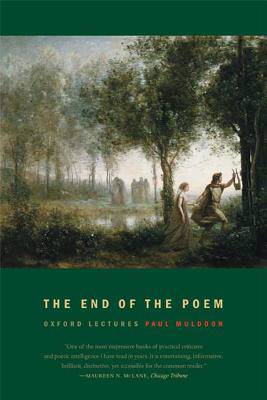
- Afhalen na 1 uur in een winkel met voorraad
- Gratis thuislevering in België vanaf € 30
- Ruim aanbod met 7 miljoen producten
- Afhalen na 1 uur in een winkel met voorraad
- Gratis thuislevering in België vanaf € 30
- Ruim aanbod met 7 miljoen producten
Omschrijving
In The End of the Poem, Paul Muldoon dazzlingly explores a diverse group of poems, from Yeats's "All Souls' Night" to Stevie Smith's "I Remember" to Fernando Pessoa's "Autopsychography." Muldoon reminds us that the word "poem" comes, via French, from the Latin and Greek: "a thing made or created." He asks: Can a poem ever be a free-standing structure, or must it always interface with the whole of its author's bibliography--and biography? Muldoon explores the boundlessness created by influence, what Robert Frost meant when he insisted that "the way to read a poem in prose or verse is in the light of all the other poems ever written."
Finally, Muldoon returns to the most fruitful, and fraught, aspect of the phrase "the end of the poem" the interpretation that centers on the "aim" or "function" of a poem, and the question of whether or not the end of the poem is the beginning of criticism. Irreverent and deeply learned, The End of the Poem is a vigorous approach to looking at poetry anew.
Specificaties
Betrokkenen
- Auteur(s):
- Uitgeverij:
Inhoud
- Aantal bladzijden:
- 416
- Taal:
- Engels
Eigenschappen
- Productcode (EAN):
- 9780374531003
- Verschijningsdatum:
- 21/08/2007
- Uitvoering:
- Paperback
- Formaat:
- Trade paperback (VS)
- Afmetingen:
- 142 mm x 216 mm
- Gewicht:
- 544 g

Alleen bij Standaard Boekhandel
Beoordelingen
We publiceren alleen reviews die voldoen aan de voorwaarden voor reviews. Bekijk onze voorwaarden voor reviews.











